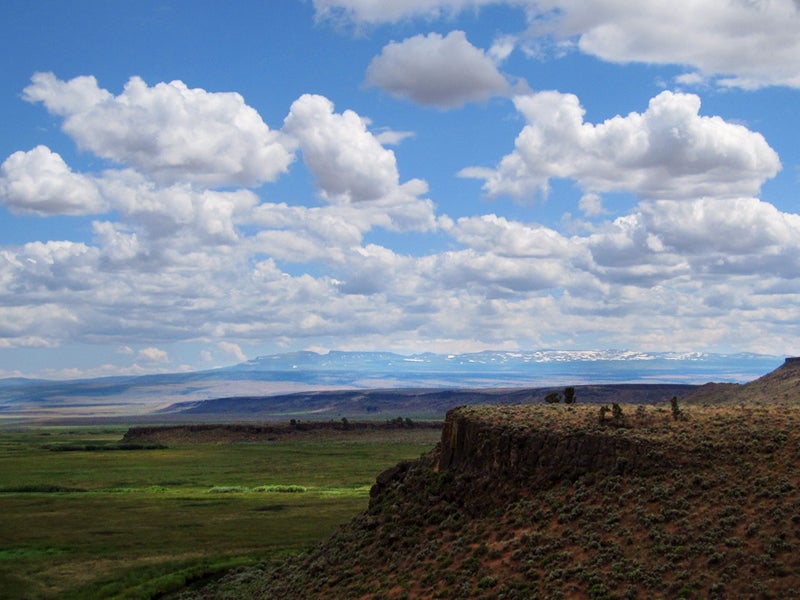Stealing America’s Birthright
There's a lot at stake in the armed standoff at Malheur National Wildlife Refuge.

This page was published 10 years ago. Find the latest on Earthjustice’s work.
Armed, anti-government militants have taken over Oregon’s Malheur Wildlife Refuge. The militants and their sympathizers have peddled false assertions about America’s public lands. For example:
“The land policies now are, basically, lock it up and throw away the key,” a commissioner from Garfield County, Utah, told The New York Times in a quote that wrapped up a front page story. “It’s land with no use.”
This statement is plain wrong in two important ways. First, our public lands are widely exploited for resource extraction today, with private corporations making many millions of dollars drilling for oil, mining for coal or metals, logging trees, and commercial cattle grazing on lands that belong to you and me. Second, for public lands not subject to these extractive uses, it’s downright myopic to say that land is useless if it isn’t supporting mining, logging or livestock grazing. Have the militants and their sympathizers forgotten the millions of hikers, campers, hunters and anglers who use these wild places for things other than making money? And what about the wildlife habitat, clean water and open space that America’s public lands provide?
Many millions of American taxpayers cherish public lands as they are, in their wild state. These priceless places provide refuge, not just for wild animals, but for parents, grandparents, kids, solo travelers—anyone seeking to enjoy and reconnect with the natural world.
The armed extremists holed up in the federal building in Oregon would just as soon turn these public spaces owned by all Americans into their own private assets to exploit for their own profit. And while some anti-government conservatives have disclaimed the ranchers’ extremist tactics, the sentiment behind the armed seizure of a national wildlife refuge has more in common than you may realize with those who wish to see federal lands opened to even more mining, logging, drilling and commercial livestock grazing.
According to that same Times article, the Utah-based American Lands Council—part of a right-wing effort to hand over millions of acres of Western public lands to state control—has the influential support of a group backed by the billionaire Koch brothers.
Behind-the-scenes efforts to seize and sell America’s public lands put everyone’s access to our national forests and wildlife refuges at risk. Selling off America’s natural heritage would mean reduced access to hunting, fishing and recreational activities. It also could spell even bigger problems, such as threats to clean drinking water supplies or a higher risk of dangerous wildfires.
And it’s unpopular with the public. Recent polling in western states found that an overwhelming majority of voters in the region oppose transferring national public lands to state ownership. One reason it’s unpopular is that millions of westerners and other Americans use and cherish these lands and don’t want to lose them.
Take me, for example. I recently made a photo book for my wife for her birthday. As I culled through our photos to select the best ones for the book, I was struck by how many were taken while my wife and I camped, hiked, rafted and hung out on public lands with our children. These lands are as priceless to me as the photos and memories of my family’s time there. I don’t want to lose them to ideologues or private interests run amok, and I’m confident most Americans agree with me.
We need to celebrate and protect our public lands, not misrepresent how they’re used or put them at risk at the point of a gun.